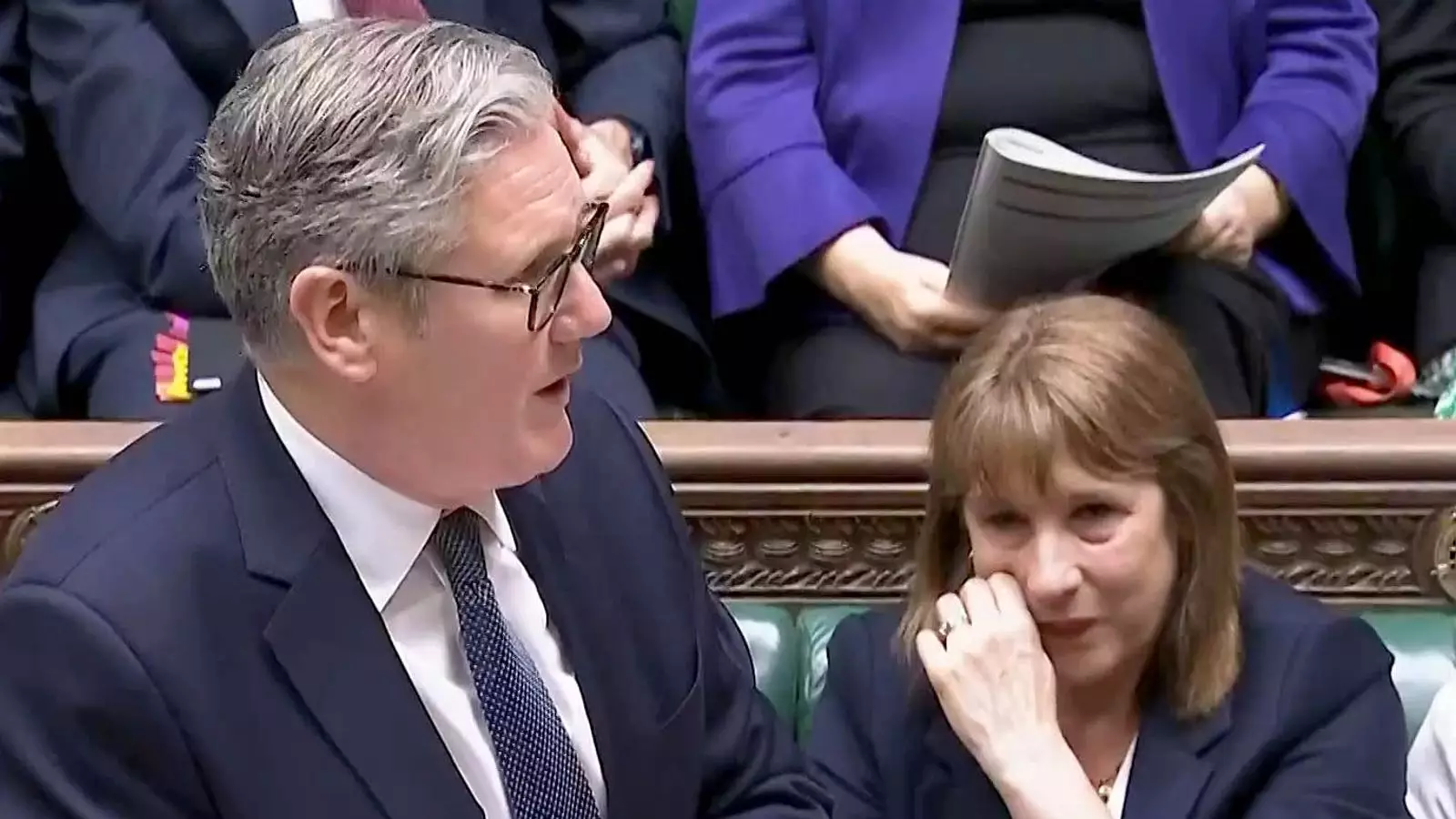In a landscape defined by constant flux, the current UK political scene is marred by a pervasive sense of instability that threatens both the Labour Party and the Conservative government alike. Senior figures from both sides suggest a looming crisis, with the potential for pivotal leadership upheavals within mere months. This atmosphere of impending change underscores the fragile nature of political power in a country grappling with economic uncertainty, voter discontent, and internal divisions. The idea that leaders could be ousted so swiftly if electoral performances falter reveals a system marred by volatility rather than stability. Such a scenario exposes how tenuous political legitimacy can be when public confidence wanes, underscoring the urgent need for policies and leadership that can genuinely inspire trust rather than induce despair.
Labour’s Fight for Relevance Amidst Discontent
Under Sir Keir Starmer’s leadership, Labour faces not only electoral challenges but also internal dissent that could potentially unravel his position. Reports from influential insiders suggest that if Labour’s poor results in critical upcoming elections—spanning Wales, Scotland, and London—materialize, Starmer could find himself ousted. This dose of harsh reality hints at a party that is still searching for a cohesive identity capable of resonating with a broad electorate. The rise of reformist movements like Reform UK in Wales and the increasing prominence of left-wing parties such as the Greens threaten Labour’s traditional base and its aspirations to govern. The stakes are higher than ever, and the internal frustrations within Labour reflect a broader skepticism about its current trajectory. Starmer’s leadership might be more fragile than it appears, especially if electoral wins remain elusive, revealing the deeply-rooted dissatisfaction that division fosters within party ranks.
The Government’s Internal Struggles and Political Pressures
On the Conservative side, Prime Minister Rishi Sunak’s tenure appears equally strained. His unwavering support for Chancellor Rachel Reeves—an intriguing choice considering her position on the opposition benches—suggests an attempt to project stability amid chaos. However, her emotional display during Prime Minister’s Questions and the subsequent market reactions highlight the intense pressures leaders are under. The financial fallout from the welfare U-turn, which led to a significant short-term crisis in markets, exposes the brittleness of government strategies when faced with public and economic scrutiny. Although Sunak publicly defends Reeves and dismisses her tearfulness as personal, the incident underscores how political decisions—especially those involving welfare and economic policy—are deeply intertwined with emotional resilience and public perception. The challenge for both leaders is navigating this minefield without exacerbating their vulnerabilities.
The Broader Implications for Political Leadership and Public Trust
This current period reveals an unsettling truth: leadership in the UK is increasingly defined by transient support and fragile mandates. Both major parties are in a state of flux, with internal conflicts and external pressures converging to destabilize political careers and policy agendas. The apparent reliance on personal loyalty, as seen with Sunak’s backing of Reeves, suggests a leadership style that prioritizes alliances over accountability, which only deepens public mistrust. Meanwhile, the idea that electoral performance can swiftly accelerate leadership changes signals a departure from traditional, stable governance. In a democracy that values endurance and consistency, this emerging pattern of fragile leadership and rapid turnover raises concerns about the country’s capacity to implement long-term strategies for economic recovery and social cohesion. Ultimately, the current political environment demands introspection and a shift toward genuine, trust-building leadership—an imperative that both parties seem increasingly ill-equipped to meet.

